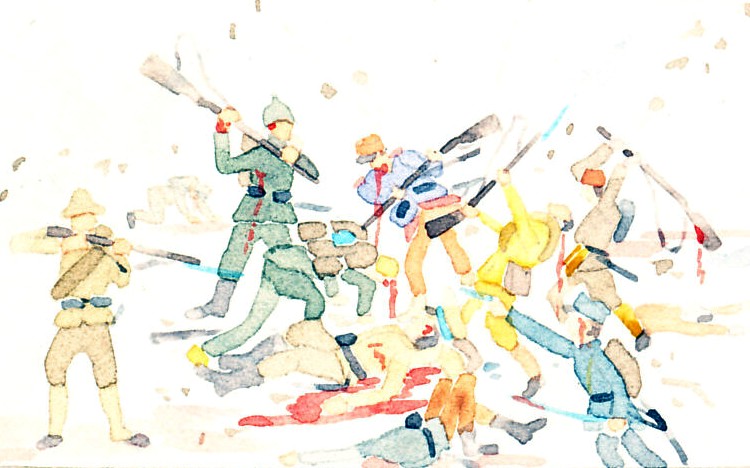Postcard celebrating the ceasefire on the Eastern Front. The troops are Russian, Austro-Hungarian, and German. The flags are Austrian and Russian; the coat of arms and bunting German. Russia declared a ceasefire on December 15, 1917. The Treaty of Brest-Litovsk, ending Russia's involvement in the war, was signed on March 3, 1918 between Russia and the Central Powers.

Waffenstillstand im Osten
Ceasefire in the East
Logo NPG (?) B347
Reverse:
Lines only
Other views:
Larger
